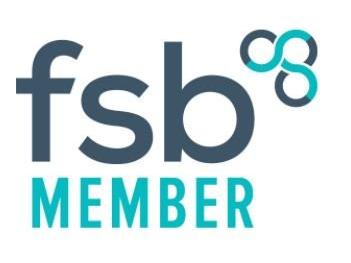Why Google Reviews Matter
The Role of Customer Reviews
Customer reviews are one of the most important forms of social proof. People trust what others say about you, and they can make or break a sale. But there's more to it than that. Google uses reviews as a ranking factor, meaning your local SEO performance is directly linked to what people say about your business. If you've got a stack of 5-star reviews, you're much more likely to show up in local searches—simple as that.
But let's be honest: we all get negative reviews sometimes. It could be a genuine customer complaint or because someone just woke up on the wrong side of the bed. It could even be a fake review from a competitor trying to knock you down a peg. Either way, it's something that needs your attention.
Can You Remove Negative Reviews?
Short answer: not really. Google doesn't give businesses an easy "delete" button. There are only two ways a review can be removed: either the person who posted it deletes it themselves, or you "flag" the review as inappropriate and hope Google takes action. Google has rules against spam, hate speech, personal info, etc. If a review has any language that is against Google's policies, flagging it could get it removed from your profile.
How to Flag a Google Review
If you spot a review that's fake or breaks Google's policies, you can flag it for removal. Here's how:
- Go to your Google Business Profile and find the review.
- Click on the three vertical dots next to the review and select "Flag as inappropriate."
- Follow the prompts to submit to Google for consideration.
Remember, though, this isn't instant magic. Google might take days, even weeks, to review your request—and there's no guarantee they'll remove it. In my experience they rarely remove reviews.
Fake Reviews: Where They Come From
Fake reviews are a thing. It could be competitors trying to get an edge, ex-employees with an axe to grind, or bots spamming nonsense. Below are a few signs that a review may be fake:
- Extreme language: Extreme language or reviews where the persona can find nothing positive is often an indicator of a fake review.
- Vague details: Genuine reviews often have specific details such as the names of staff members and the product or service they purchased.
- Suspicious profiles: Check if the reviewer's profile has a history of odd reviews or has only ever written one review.
If you see something that looks fishy, flag it and provide any evidence to Google that shows the review is fake.
A Proactive Approach to Reviews
The best way to reduce the impact of negative reviews (fake or otherwise) is to drown them in good reviews.
Having a strategy and making time to get from happy customers is one of the besta marketing activities you can carry out for your businesss. Ask your customers to leave reviews when they're happy with your services or products and make it easy for them to leave you a review. Many people will be willing to help if you ask. Maybe it's a follow-up email after a purchase or even a friendly nudge during a conversation. The key is to make it easy and natural for them to leave feedback.
On the other hand, when it comes to negative feedback, it is always best to keep that off public channels when possible. If a customer seems unhappy, address their concerns directly. You want to resolve issues before they get frustrated enough to post a negative review online. A direct conversation can prevent a bad review and turn a potentially lost customer into a loyal one.
Make it easy for customers to give you a review.
Google provides a unique link which you can send to your customers to leave a review. This can sent via SMS, email or WhatsApp or you can have it linked to a QR code
Responding to Negative Reviews
If a negative review does slip through, the best thing you can do is respond professionally. Keep it cool, acknowledge their feelings, and offer a solution. For example, you could say, "Hi [Reviewer], we're sorry to hear about your experience. Please contact us directly so we can make things right."
Responding to negative reviews is more than damage control. It's a chance to show that you care and give potential customers confidence that should something go wrong, you will act to put it right.
Remember, the best way to counter bad reviews is to push them down under lots of good reviews.
Wrapping Up
At the end of the day, your reviews are extremely important for your business. Getting positive reviews and a high average rating for your business can make a big difference in your reputation and rankings in search results. While it does take time and effort, it will pay off in the long run, and attract more customers for your business.
Be proactive when it comes to reviews. Ask for feedback, take criticism constructively, and build up that 5-star profile.














